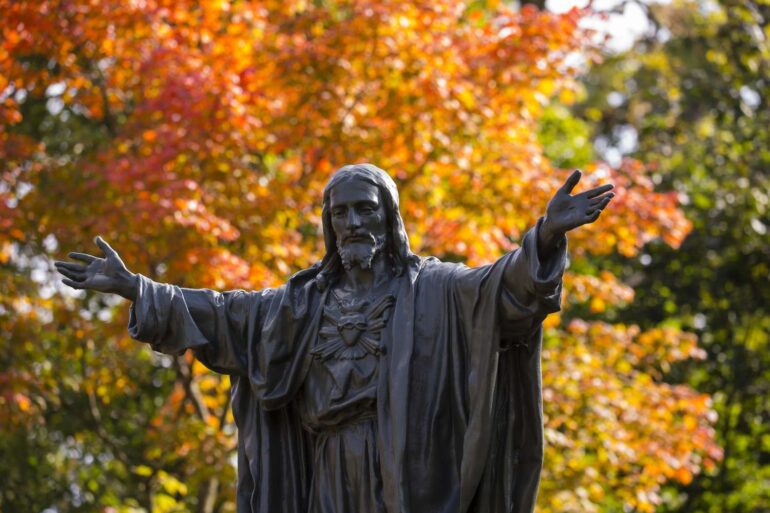TL;DR:
- Eight Catholic universities develop a five-year strategy to educate and research the social impact of AI.
- Over 80 professors and researchers discuss the challenges and opportunities of AI in a two-day conference.
- AI blurs the division between hard sciences and social sciences, fostering multidisciplinary collaboration.
- AI advancements empower researchers with vast data processing capabilities, making their work reproducible.
- Catholic universities aim to steer AI development ethically and prioritize human dignity.
- SACRU network formulates a strategy to educate young people and foster cooperation among Catholic universities.
- Universities share a common mission to educate and conduct impactful research in the age of AI.
Main AI News:
A group of eight esteemed Catholic universities recently concluded a momentous two-day conference in Milan, where they devised a comprehensive five-year plan aimed at educating young individuals and spearheading research concerning the profound societal implications of artificial intelligence (AI). Organized by the international network SACRU, this scientific colloquium took place at the prestigious Catholic University of the Sacred Heart, situated in the historic city of Milan.
Drawing together over 80 distinguished professors and researchers from Catholic universities in Chile, Spain, Australia, the United States, Japan, Portugal, Brazil, and Spain, the conference, entitled “The Future of Catholic Universities in the AI Age,” fostered in-depth deliberations on the challenges and opportunities stemming from advancements in AI. Experts hailing from diverse disciplines within the humanities and sciences participated in this remarkable intellectual exchange.
One key revelation that emerged during the extensive discussions held on July 13-14 was the prospect of multidisciplinary convergence between the hard sciences and social sciences as a result of AI. Prof. Marco Carlo Passarotti, a revered faculty member at Sacred Heart University, asserted that the traditional separation between humanities and scientific disciplines is poised to become antiquated due to the transformative power of AI. “Humanists have long relied on data,” explained Prof. Passarotti in a press release issued by SACRU. “Yet, never before have they had access to such an immense volume of data and the unprecedented capability to process it on a massive scale.”
While AI advancements introduce new challenges for researchers, they do not pose a threat to their indispensable role. Prof. Passarotti elaborated, “This groundbreaking development in computational capabilities places vast amounts of data and the interconnections between them in the hands of researchers like never before, empowering them and making their work reproducible.”
In unanimous accord, the professors affiliated with SACRU affirmed that when used responsibly and ethically, AI has the potential to enhance human understanding of both the world and oneself. In this context, universities serve as pivotal institutions that can embrace the evolution of AI technologies and employ them in ways that prioritize the well-being of individuals. Prof. Passarotti emphasized the crucial obligation of Catholic universities to educate society about the impact of AI, stating, “Recognizing and harnessing the influence of AI is of utmost importance, as it enables us to guide its development in a manner that upholds human dignity and prevents the delegation of moral responsibility to machines.”
In response to the profound challenges posed by AI, the SACRU network has formulated an ambitious five-year strategy aimed at educating young people and fostering collaboration among the eight participating Catholic universities. Prof. Pier Sandro Cocconcelli, Vice Rector of Sacred Heart University and Secretary General of SACRU, highlighted the conference’s central focus on embracing the ever-shifting technological landscape within the educational sector. “The eight universities share a united mission and vision: to educate future generations and generate impactful research that resonates within society,” remarked Prof. Cocconcelli.
The outcomes of this momentous conference will be compiled and published later this year, providing the public with the universities’ insightful proposals on how to adapt their teaching and research endeavors to thrive in the age of AI. Through their unwavering commitment to ethical integration, Catholic universities are poised to shape the trajectory of AI, leading us toward a future where technological advancements harmoniously coexist with our shared values and human dignity.
Conclusion:
The commitment of Catholic universities to the ethical integration of AI signifies their recognition of the transformative potential of this technology. By embracing multidisciplinary collaboration and prioritizing human dignity, these institutions are poised to shape the trajectory of AI development. The emphasis on education and research in the age of AI underscores their commitment to preparing future generations for the challenges and opportunities presented by AI. This concerted effort is expected to have a positive impact on the market, fostering responsible and ethical AI practices that prioritize human values and societal well-being.

